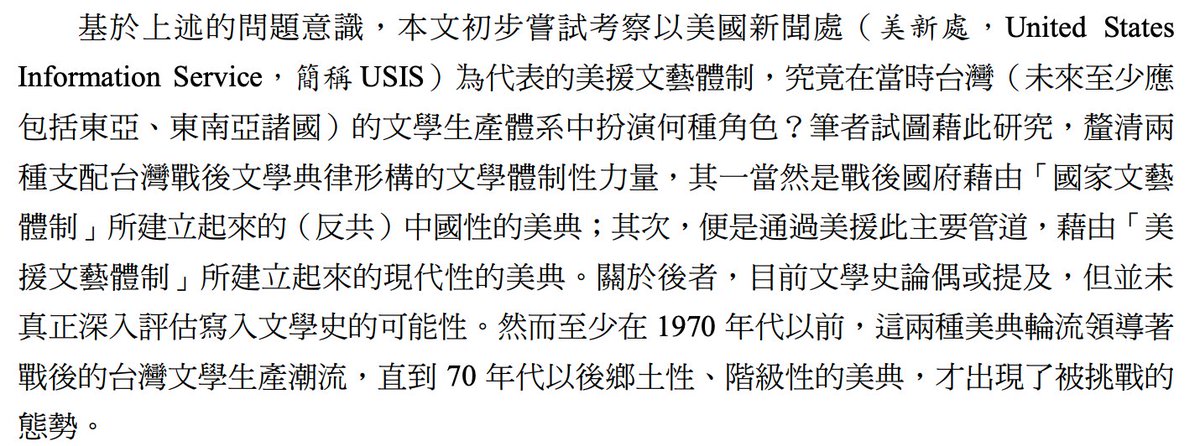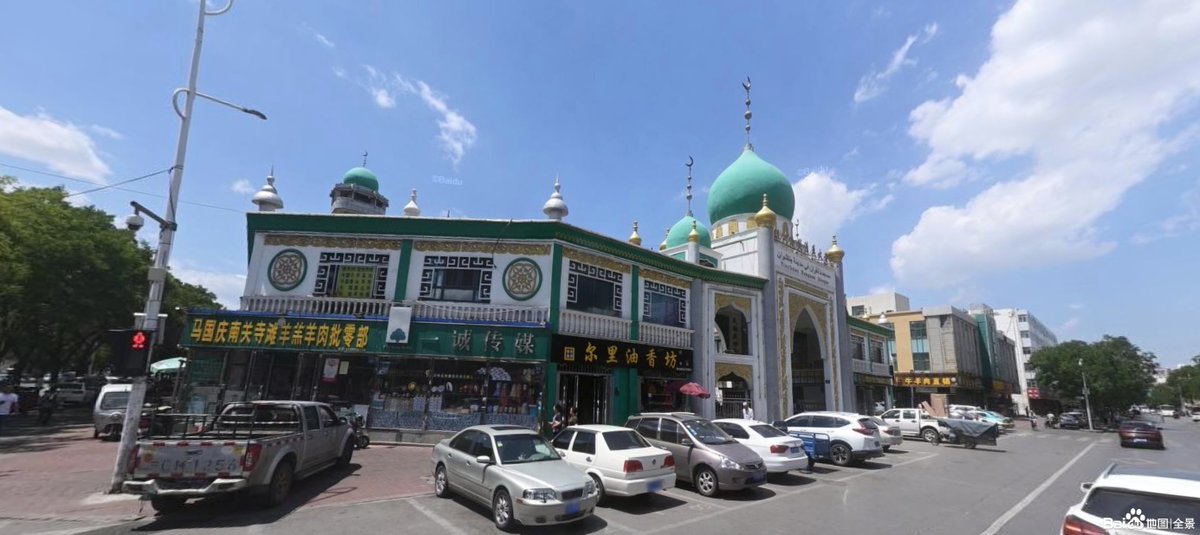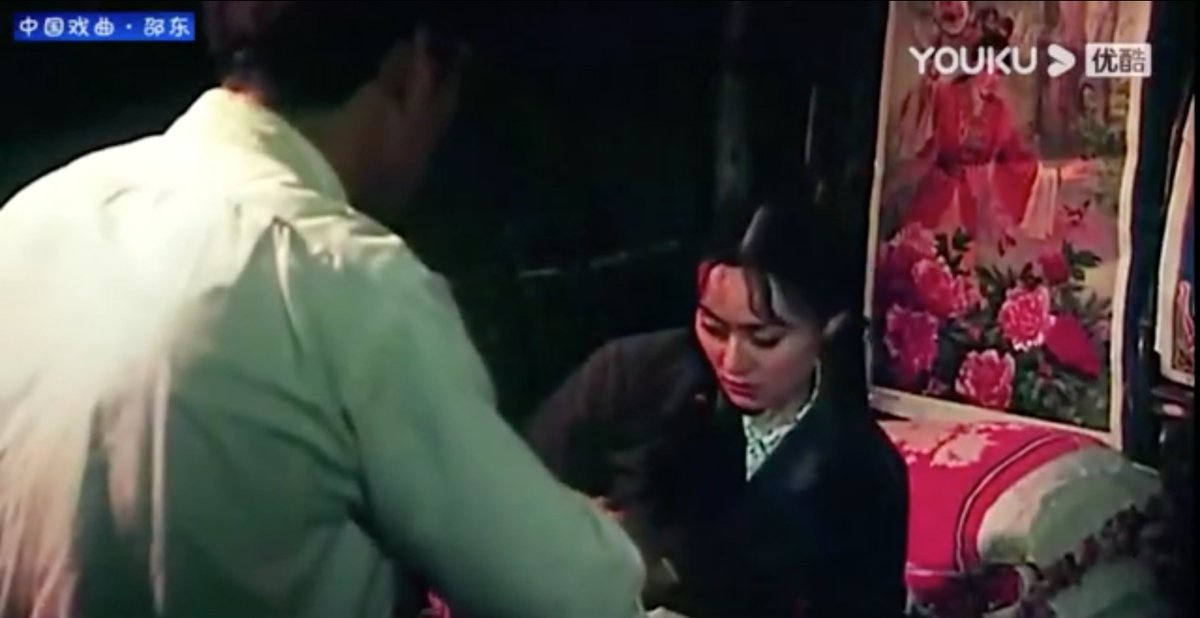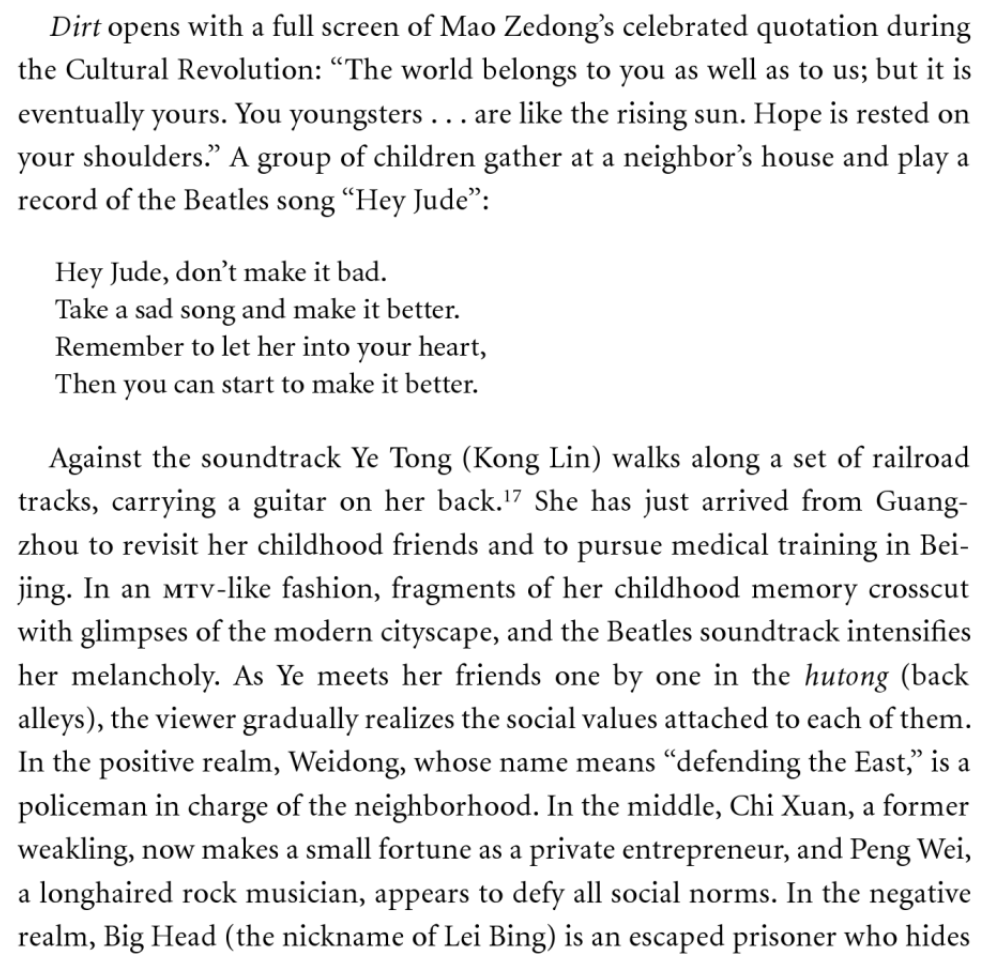
When talking about Taiwanese literature, it's usually imagined as a more ideologically free space, compared to Mainland literature. That impression and the literature written during the Cold War were the result of the US Information Service's own ideological project in East Asia.
The concept of a "U.S. aid literary institution" 美援文艺体制 comes from Chien-Chung Chen 陈建忠, who contrasted it with the national arts and culture institution 国家文艺体制—both pushed an anticommunist message, but the American institution was a soft system 软性体制...
...developing Taiwanese literature in a direction that would allow it to match up with the world view and esthetic point of view of the United States, breaking the author's connection to society, turning it into pure esthetics. 







Wang Mei-hsiang 王梅香 compares PRC/Soviet cultural relations and the power of the U.S. aid literary institution in Taiwan. Local literary and academic circles were cut off from dissenting ideology and literature, with only works approved by the USIS allowed to come and go. 







In Taiwan, revelations about—or controversy around—American funding for literary magazines and promotion of literary modernism was slow to emerge. Chen Fangming 陈芳明 in a 2011 speech said: if only we had known where Pai Hsien-yung got the money for Modern Literature 现代文学! 







It was funded by USIS with a goal to systematically promote Western literature ("...有系统地翻译介绍西方近代艺术学派和潮流,批评和思想...") with the idea that older forms were no longer relevant ("我们感于旧有的艺术形式和风格不足以表现我们作为现代人的艺术情感").
The editors and writers involved came out of the woodwork to say claims of USIS funding were misleading or false. The idea that their writing was influenced by politics was offensive. In a way, that—to separate art and politics—was exactly the goal of the entire project.
Off the topic, but it's included in the clipped sections above... In Hong Kong, Wang Mei-hsiang says, the situation was different. Maybe they were more genuinely anticommunist or just hungrier. But that's how you get USIS-HK planning books for Eileen Chang to write.
• • •
Missing some Tweet in this thread? You can try to
force a refresh






























